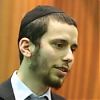הָא לַחְמָא עַנְיָא דִּי אֲכָלוּ אַבְהָתָנָא בְאַרְעָא דְמִצְרָיִם. כָּל דִכְפִין יֵיתֵי וְיֵיכֹל, כָּל דִצְרִיךְ יֵיתֵי וְיִפְסַח. הָשַּׁתָּא הָכָא, לְשָׁנָה הַבָּאָה בְּאַרְעָא דְיִשְׂרָאֵל. הָשַּׁתָּא עַבְדֵי, לְשָׁנָה הַבָּאָה בְּנֵי חוֹרִין.
This is the bread of destitution that our ancestors ate in the land of Egypt. Anyone who is famished should come and eat, anyone who is in need should come and partake of the Pesach sacrifice. Now we are here, next year we will be in the land of Israel; this year we are slaves, next year we will be free people.
With these words, we begin the section of the Seder called “Maggid.” This paragraph serves as a sort of introduction to the story of Yetzias Mitzrayim. There are three topics being discussed: 1) A description of the Matzah we eat tonight 2) An open invitation to whoever is hungry 3) A prayer for redemption. So much has been written about this paragraph and I would like to share with you a few questions and answers that the mefarshim deal with.
Q: Why do we say this paragraph altogether? It seems to be a few random statements cobbled together! And why specifically at this point of the Seder?
A: The Rashbam explains that immediately prior to this we did Yachatz – splitting the Matzah into two pieces. The children are probably wondering why we did that. So, to answer their question we begin Maggid by saying “This is the bread of affliction.” We are saying that just like poor man’s bread is never whole we too split our Matzah.
The Raavan explains that we are prompting the child to ask “Ma Nishtana” through letting him know that we will soon be eating Matzah so he will ask why.
The Siach Yitzchok explains that we are worried that the child will fall asleep, so we are giving him a synopsis of the story now in case that happens.
The Ksav Sofer explains that is in the nature of a person to find it hard to give from what they have to other people and therefore the sages instituted to say the paragraph Hei Lachma Anya, speaking about poor man’s bread in order that we should be able to put ourselves in the shoes of people that are poor and empathize with them, and then we will be able to say with a full heart: Kol Dichifn Yeisei Vyeichol – whoever is hungry should come and eat.
Q: Why is this paragraph said in Aramaic not Hebrew like the rest of the Haggadah?
A: The Ritva explains that this prayer is not from the Mishna rather the Rabbis of the Talmud composed it and therefore made it in the common language of the time which was Aramaic. He also explains that the Angels cannot understand Aramaic. On the Seder night, we have the power to reach Hashem himself and we have no need for the angels’ assistance. We express that through saying a prayer that the angels cannot understand.
Q: Why specifically on Pesach night do we say kol dichvin Yeisei Veyeichol? Why specifically on Pesach are we inviting people to come to our house to eat? Don’t we need to have guests every Yom Tov?
A: The Shibbolei Haleket explains that we find in the Medrash that the Jewish people only went into exile to Bavel because they ate Chometz on Pesach. Therefore, the sages instituted that we announce, kol dichvin Yeisei Veyeichol, that everyone who’s hungry should come and eat. In other words, everyone should come and see that we are now careful from this aveira, and we only eat matza. Therefore, we continue in the next statement, Leshono Habo Bnei Chorin, next year we will be free people in the land of Israel. Meaning, that in the merit of being careful of eating matzah and not eating Chometz we will merit redemption.
The Chasam Sofer explains that a person can have a question when starting the section of Maggid, why are we so happy? What exactly are we celebrating? Aren’t we still in Golus? Aren’t we still in exile? It’s true that we’ve left Egypt, but now we’re in this long, bitter exile, which doesn’t seem to end. And the answer that we’re giving is the exile of Egypt had to go for a certain amount of time, and there was nothing they could do to hasten the redemption. But now, we do have a way of bringing Moshiach closer. As Chazal say: G’doyla tzedakah she’mekareves es ha’geula. That, through giving charity, we bring Moshiach closer. And therefore, we say in this paragraph, kol dichfin yesei v’yeichoil, whoever is hungry should come and eat. Through doing charity and inviting guests to our homes we will merit l’shonah ha’boah ba’arot deisrael, that next year we’ll be in the land of Israel. And that is why we are happy during the Seder, even though we are in exile because we know that we have the power to bring an end to all of this.
May we merit to a true Zman Cheruseinu with all of Am Yisrael free and secure in Eretz Yisrael with the coming of Moshiach!
 Rabbi Levi Gourarie
Rabbi Levi Gourarie